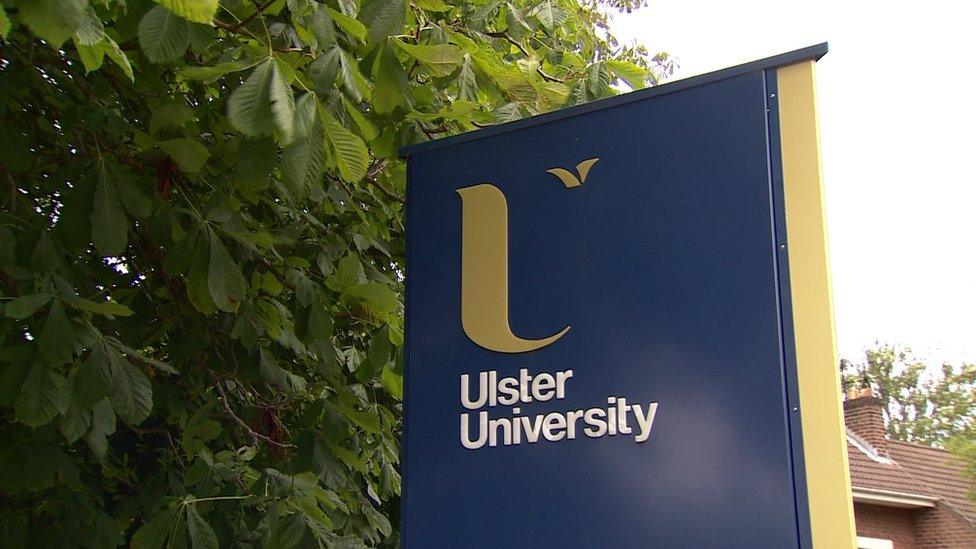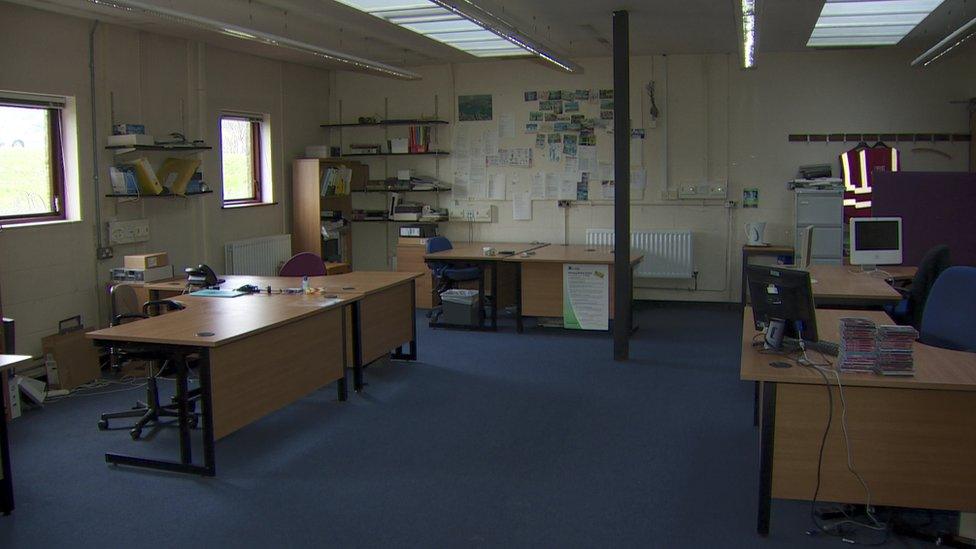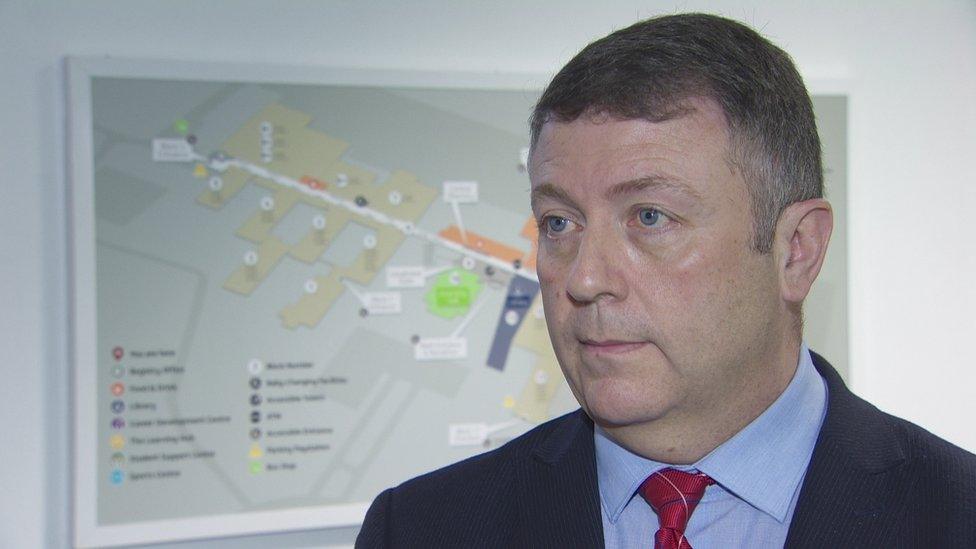Ulster University 'cancer cluster' investigated
- Published

Several people who worked at the Ulster University campus were diagnosed with cancer, it was reported
A cancer agency has investigated allegations of a "cancer cluster" in part of an Ulster University's (UU) campus, BBC News NI has learned.
A inquiry by the Northern Ireland Cancer Registry (NICR) found insufficient evidence that UU's Jordanstown campus was responsible for any cancers among staff.
The university said the campus is safe for both staff and students.
But it also said that no staff will be permanently based in the area now.
The area - the lower part of block seven in the main Jordanstown campus building - was not used by students.
It housed about 35 staff at any one time who worked in the university's information technology (IT) department.
'Several cancer diagnoses'
The NICR investigation was triggered by a former member of staff who approached the registry.
There were concerns that "several cancers had been diagnosed" among people "working in that area in recent years".

The area housed about 35 staff but the university will now use it for storage
When the university was subsequently contacted by the NICR in July, it immediately moved all staff out of the block.
While the NICR investigation was going on, UU also carried out 26 separate investigations into environmental factors, including ionising radiation, asbestos and electro-magnetic radiation.
The university's director of people and culture Damian McAlister told BBC News NI that the health and wellbeing of staff was its primary concern.
"We particularly think of those staff who are ill at this time and their families," he said.
"All of those tests have returned safe results that indicate to us there are no environmental factors at this stage that we know of that would cause the cancer that has been reported in our staff."
Mr McAlister also said that 65 current and former staff who worked in the area had been contacted "to make them aware of the issue but also to invite them to participate in the cancer registry's analysis".
He added: "Of those 65, 29 staff provided their consent for their information to be passed on a confidential basis to the cancer registry."
'Random chance'
The NICR's findings were reported to staff this week and have been obtained by BBC News NI.

Damian McAlister said that Ulster University's Jordanstown campus is safe for staff and students
Its report said that "cancer incidence rates" among employees working in one office in the area "were higher than the Northern Ireland average".
But it found "insufficient evidence to support the hypothesis that higher rates in the smaller office area are a result of an external environmental factor".
"The small number of cases and the lack of an obvious relationship between the types of cancer diagnosed suggests that any differences are more likely a result of random chance, lifestyle or genetic factors."
The University and College Union (UCU), which represents some staff, said it "cautiously welcomed" the NICR's findings but expressed concern about the size of the study sample.
"It is entirely possible the results could be either more or less alarming if more of those potentially affected agreed to cooperate with cancer registry," said the union's Katharine Clarke.
She said the UCU would encourage staff who worked in the area to contact the registry to help to "establish a more conclusive and reliable finding".
The university has decided that the area will be primarily used for storage in future.